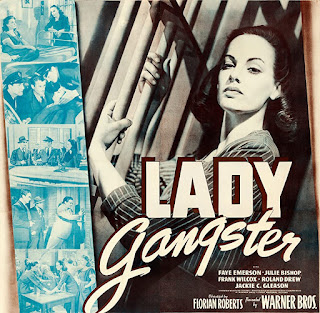(1942)
Directed by Herbert I. LeedsWritten by Brett Halliday (characters), Clarence Upton Young, based on a novel by Raymond Chandler
Starring Lloyd Nolan, Heather Angel, Ethel Griffies, James Seay
IMDB Entry
Last week, while researching my entry for The Brasher Doubloon, I happened on the fact that the book has previously been adapted as a Mike Shayne programmer starring Lloyd Nolan. Naturally, I had to check out Time to Kill.
Michael Shayne (Lloyd Nolan) is a detective hired to find the Brasher Doubloon, stolen from Mrs. Murdock (Ethel Griffies). He meets her secretary Myrtle Davis (Heather Angel), who seems to be hiding a secret.
The movie varies substantially from the later version. Myrtle's secret gets a short shift, where it is far more prominent in the remake. The big difference is Lloyd Nolan's portrayal of Shayne. Whereas George Montgomery didn't quite have the gravitas to be Marlowe, Nolan makes him more than just a wisecracker. Nolan played Shayne in five times before this and is the perfect actor for this sort of role. Alas, this was the last movie in the series.
The studio clearly didn't know what to do with Chandler. It was an odd hybrid of franchises. Chandler had had some success, but the studio must have decided he wasn't well enough know to make a movie featuring his name and instead attached it to an existing franchise, with just enough of his novel left to make the connection clear.
Director Herbert I. Leeds did several B-pictures for Fox and seemed to be known for his efficiency. This might have served him well in television,* but his death in 1953 cut short his career.
Nolan had a long career as a character actor and is best known for playing Diahann Carrol's crusty but kind boss in Julia.
______________________________________________________________
*He directed many episodes of Jackie Gleason's The Life of Riley.
.jpg)



